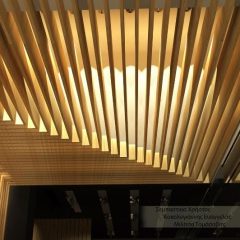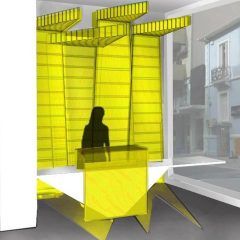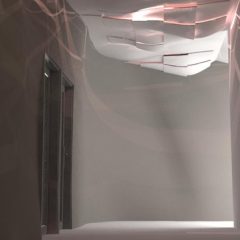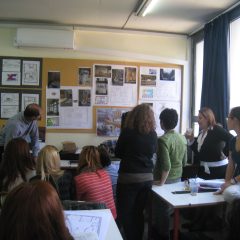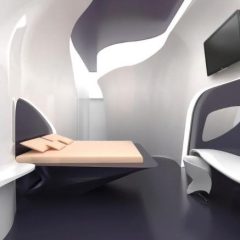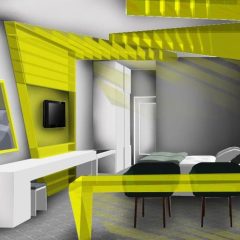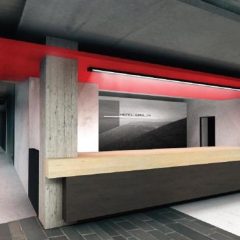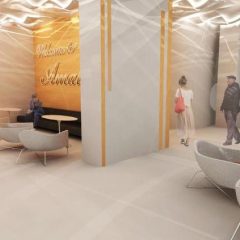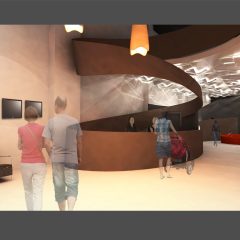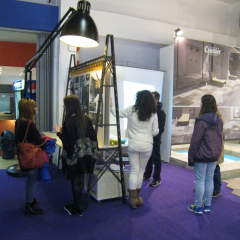General
The order of the synthetic courses of Architecture Interior is placed in the core of the department’s cognitive content. These courses aim to explore theories and practices concerning separate areas, scales and building practices in architectural design interiors. Studies carried out encourage the creative mental process in design and introduce the interior as an area of critical thinking, as a carrier of social relations and as a construct that communicates specific spatial identities as it uses narratives, materials and objects. Through these courses, students reinforce the analytical and synthetic process, the critical thinking, the holistic approach, the ability to take decisions and the interdisciplinary approaches that encompass all parameters architectural design of interiors, with escalating knowledge and practical applications.
Course content
The content of this course focuses on the creative design of interiors related to leisure management and also leisure and tourism. The work is processed by anthropocentric targeting and by utilizing all the knowledge so far, in order to treat the spaces in a holistic sense by highlighting the relationship of the interior with the environment and the elements of user comfort, as well as the socio-psychological qualities associated with design.
Programme aims
The aim of the course is to introduce students to conceptual content, different historical patterns and perceptual and mental functions that shape the image of modern leisure spaces, as an overall experience between functional and imaginary spaces, including new technologies. Objectives of the course through the educational process are:
• Acquisition of the required theoretical and practical knowledge, which in combination with previous learning experience, defines a broader field of knowledge
• Understanding the particular requirements of organization and planning of recreational spaces
• The ability to deal with complex problems of functionality, ergonomics, psychology and sociology of space
• Applying in public places for recreation and tourism generating ‘new tourist landscapes’
• The ability to analyze the existing situation through the development of theoretical knowledge
• The ability to methodically and creatively develop critical perception,
• Research availability and also the ability to assess research results and their composition, to create new imaginative and original spaces.
• Adaptation to new situations
• Decision making
• Working in an international environment and interdisciplinary environment
• Producing of new research ideas
• Planning and project management
Learning Outcomes: Knowledge and Understanding
This course is one of specialization of sixth semester. As such it aims to deepen the students in the field study and acquire specialized knowledge and skills in design. The course aims to implement design as a function of the programmatic framework, of the processes and methods involved in the formulation of conceptual concepts, in the analysis and exploration of patterns that serve as a reference for new proposal, systematic approach to form, in infrastructure and building systems through the specific requirements of anthropocentric design, and finally in creative design application of the above inventions. The course is organized into two axes, theory and application, which work together, with theory progressively supporting the laboratory component throughout the course of the lesson.
The theory includes lectures by course lecturers and visiting professors, which are equally distributed over the following topics:
• The management of leisure historical and sociological approach
• Recreation and tourism. History and evolution.
• The role of interior design in enhancing the quality of tourism
• Holistic design
• Identity in spatial design
• Tourism as a method of highlighting the cultural heritage architecture
It is also supported by educational visits to selected exhibition venues, participation in activities and workshops and also in exhibitions.
The theoretical part concludes with an individual research topic related to the subject of the course, which is set at the beginning of the academic semester by the teachers and is publicly supported at a scheduled date, which (as a rule) coincides with the delivery of the project at the end of the semester.
Bibliography
• Cooper, C., Fletcher, J., Fyall, A., Gilbert, D. και Wanhill, S. (1993/2008) Tourism: Principles and Practice, Harlow: Financial Times/ Prentice Hall.
• Dallen T. J. (επ.) (2007) Managing Heritage and Cultural Tourism Resources: Critical Essays, Volume One, Aldershot: Ashgate.
• Holloway, J.C., Humphreys, C. (1983/2012) The Business of Tourism, Harlow: Pearson Education.
• Inskeep, E. (επ.) (1994/2001) National and Regional Tourism Planning: Methodologies and Case Studies, London: World Tourism Organization/ Routledge
• Burkart, A.J. and Medlik, S. (1981) Tourism: Past, Present and Future, Heinemann, London.
• Hall C. M. (1999/2007) Tourism Planning: Policies, Processes and Relationships, Harlow: Prentice Hall.


